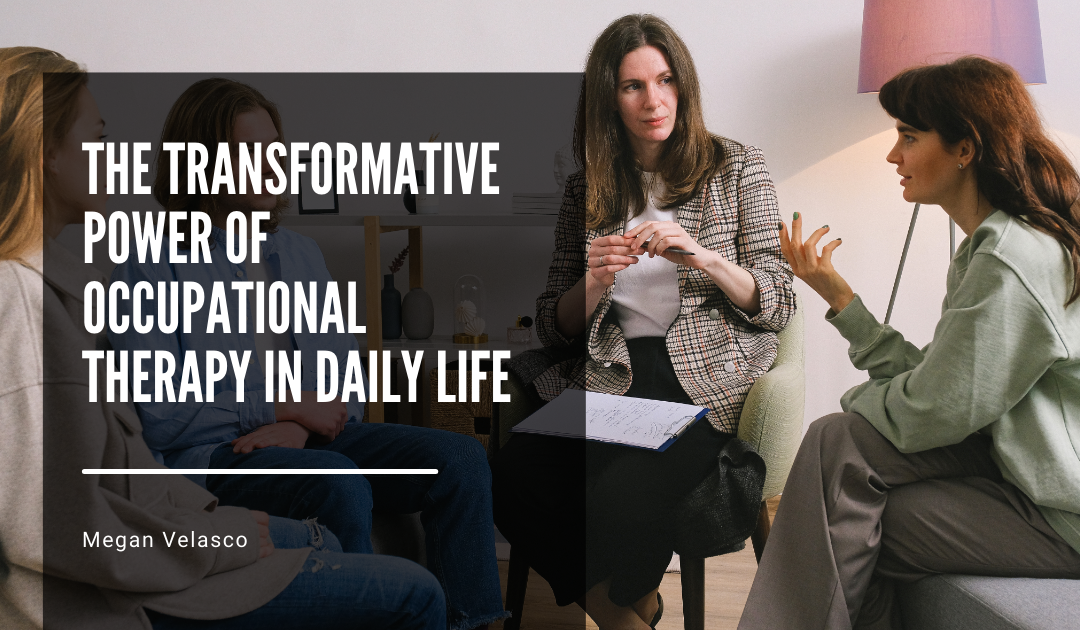Occupational therapy (OT) is a dynamic and impactful profession dedicated to helping individuals regain independence, develop skills, and participate fully in the activities that bring meaning to their lives. This transformative form of therapy addresses physical, emotional, and cognitive challenges, enabling people of all ages to navigate their daily lives with confidence and purpose.
At its core, occupational therapy focuses on enabling individuals to perform the “occupations” that matter to them, whether it’s dressing, cooking, working, or engaging in hobbies. For those facing temporary or long-term challenges, OT serves as a bridge between their current abilities and their desired goals, fostering hope and resilience.
One of the most significant aspects of occupational therapy is its holistic approach. Therapists take the time to understand each person’s unique circumstances, including their physical abilities, emotional state, environment, and personal goals. By tailoring interventions to meet individual needs, OT offers solutions that are not just practical but also deeply meaningful.
For individuals recovering from injury or illness, occupational therapy can be life-changing. Consider someone who has suffered a stroke and lost the ability to use their dominant hand. OT provides them with adaptive strategies, such as using specialized tools or developing dexterity in their other hand, so they can regain independence in tasks like eating or writing. This process not only restores functionality but also rebuilds confidence.
Children with developmental delays or disabilities also benefit profoundly from occupational therapy. Through play-based techniques, therapists help children develop fine motor skills, improve coordination, and enhance their ability to interact with peers. These interventions are not only essential for the child’s growth but also provide peace of mind for their families.
Occupational therapy extends its transformative power to mental health as well. For individuals coping with anxiety, depression, or PTSD, OT provides strategies to manage stress and engage in activities that promote mental well-being. Techniques such as mindfulness, time management, and structured routines empower individuals to regain control over their lives.
In the workplace, OT helps employees optimize their performance while minimizing the risk of injury. From ergonomic assessments to tailored interventions for those with chronic conditions, OT ensures that the workplace is inclusive and supportive.
The role of occupational therapy is also vital in elder care. Seniors often face challenges such as mobility issues, cognitive decline, or chronic illnesses. Occupational therapists work with them to maintain independence by recommending assistive devices, creating safer living environments, and providing exercises to enhance strength and coordination.
What sets occupational therapy apart is its focus on meaningful activities. The therapy doesn’t merely aim to fix problems; it strives to improve quality of life. For example, an occupational therapist working with an artist recovering from an injury might design exercises that help them hold a paintbrush again. This personalized approach ensures that therapy resonates with the individual’s passions and aspirations.
The impact of occupational therapy extends beyond the individual to families and communities. Families benefit from the guidance and support provided by therapists, who offer practical solutions to everyday challenges. Communities become more inclusive as OT advocates for accessibility and participation for all members.
Occupational therapy’s transformative power lies in its ability to help individuals reclaim their lives, one activity at a time. Whether it’s a child learning to tie their shoes, an adult returning to work after an injury, or a senior staying active in their golden years, OT is there every step of the way.
As the world becomes more aware of the importance of holistic care, occupational therapy continues to shine as a beacon of hope and empowerment. By focusing on the activities that make life meaningful, OT proves that no challenge is insurmountable and that everyone deserves the opportunity to live life to its fullest.

